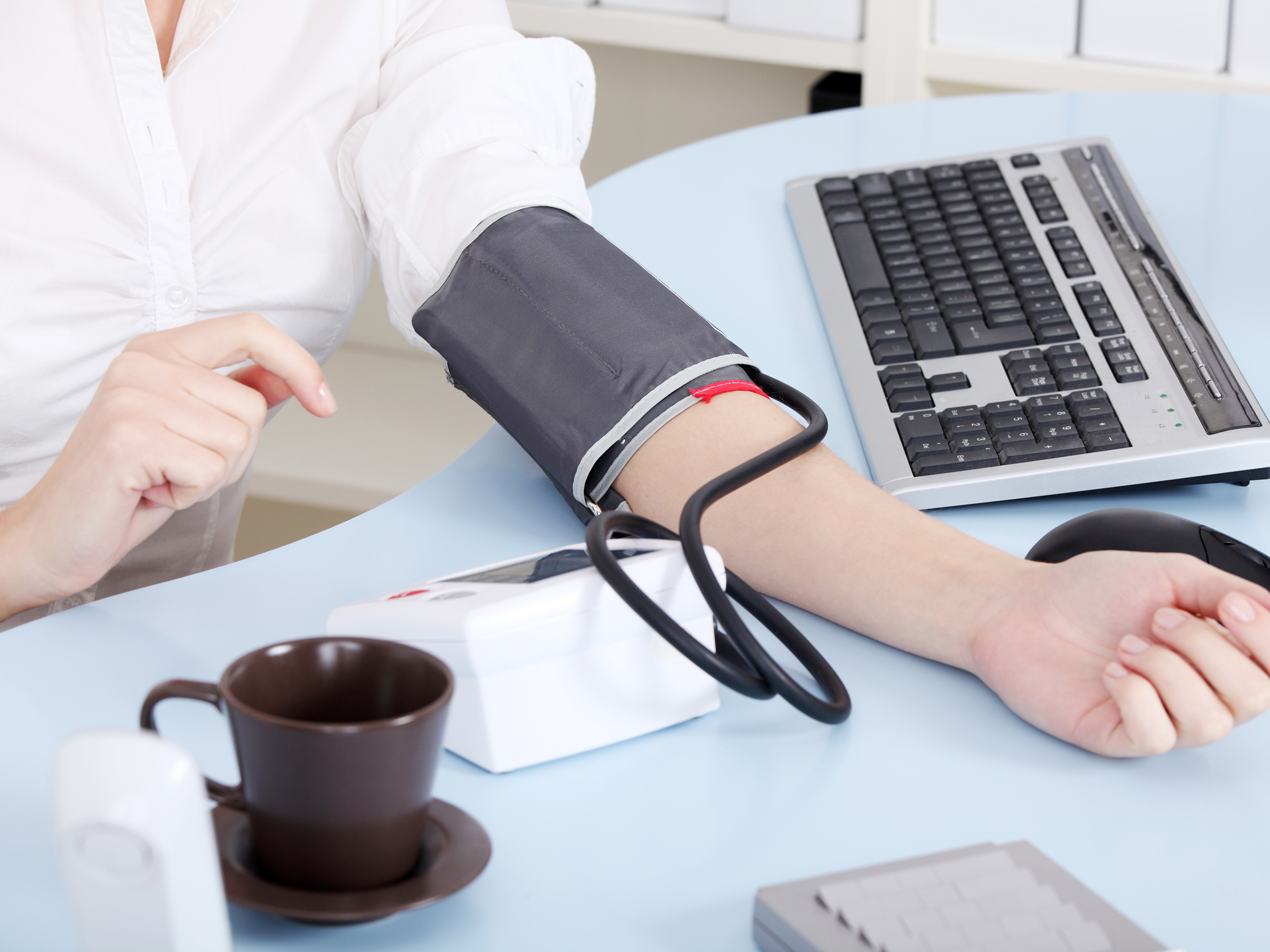Get Easy Health Digest™ in your inbox and don’t miss a thing when you subscribe today. Plus, get the free bonus report, Mother Nature’s Tips, Tricks and Remedies for Cholesterol, Blood Pressure & Blood Sugar as my way of saying welcome to the community!
Too much of this good thing raises your BP

There are numerous studies touting the many benefits of drinking coffee…
From maintaining your cognitive function to lowering your risk of several cancers, including cancers of the prostate breast, and liver, coffee offers many ways to protect both your mind and your body as you get older. By getting a daily dose of “Joe,” you can reduce the risk of these diseases and enjoy a longer, healthier life.
But there are some concerns
While the benefits of drinking coffee are many, in some cases it can cause potential problems.
Here’s why…
The caffeine in that cup of Joe, while making you more alert and ready for the day, could also be causing your heart rate to accelerate, leading to shortness of breath, sweating, and an overall feeling of anxiety. If you start having any these symptoms, you may need to cut back or consider switching to decaf.
Too much coffee can also lead to another major problem — one that effects millions of Americans every day, dehydration.
Because coffee is a diuretic, you are more likely to become dehydrated as you increase your consumption of this popular beverage. By replacing even a small portion of your daily water intake with coffee, you are more likely to experience some of the negative effects of dehydration, including:
- Joint pain
- Headache
- Skin disorders
- Bladder problems
- Kidney problems
- High blood pressure
And the high blood pressure part hit really close to home for me…
True story
I saw my brother experience this himself just last month, as he had recently started to drink a few more cups than usual, effectively doubling his coffee intake.
Before he started drinking another cup of coffee — both right before and after dinner — he had always kept his blood pressure well within normal range. But just 10 days after starting this new regimen, his systolic pressure was over 155, even after resting for 30 minutes following dinner and his last cup of coffee.
Had he headed off to his doctor at that point, it’s likely he would have been put on any number of blood pressure medications.
But the answer was not a new prescription for a pill with numerous side effects, dubious benefits, and potential unintended consequences…
He simply needed to stop drinking too much coffee.
My brother is a model of good health for his age. He stays active, maintains a healthy weight, doesn’t smoke or drink alcohol, and actively plays with his grandkids on a daily basis. With our family history he has to be vigilant.
But he didn’t need a pill — he just needed to stop drinking too much coffee right before and after dinner.
Once he eliminated those extra cups of coffee and began drinking water instead, he rehydrated and his blood pressure returned to a normal range within days.
Achieving balance
Multiple studies show that coffee has many benefits to offer the average drinker. By having a cup or 2 a day, you can protect your brain, maintain energy levels, and lower your risk for several cancers. But, like most things, more may not be better. And by keeping an eye out for changes in your health as you change habits, you can correct many issues before they become real problems.
Sources:
-
Solfrizzi V, Panza F, Imbimbo B, et al. Coffee consumption and the risks of mild cognitive impairment. — J Alz Disease. 2015 May 11; 47(4):889-99.
-
Wilson KM, Kasperzyk JL, Rider JR. Coffee consumption and prostate cancer risk and progression in the health professionals follow-up study. — J Natl Cancer Inst. 2011 Jun 8; 103(11):876-84.
-
Li J, Seibold P, Chang-Claude J. Coffee consumption modifies risk of estrogen-receptor negative breast cancer. — Breast Cancer Res. 2011 May 14; 13(3):R49
-
Shimazu T, Tsubono Y, Kuriyama S, et al. Coffee consumption and the risk of primary liver cancer: Pooled analysis of two prospective studies in Japan. — Int J Cancer. 2005 Aug 10; 116(1):150-4.












